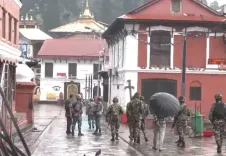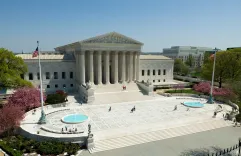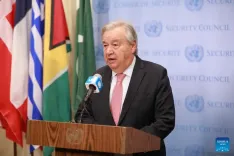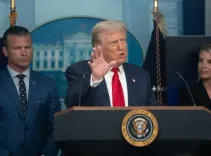Why is Japan's Constitution Day Significant? Rally in Tokyo for Peace and Against War
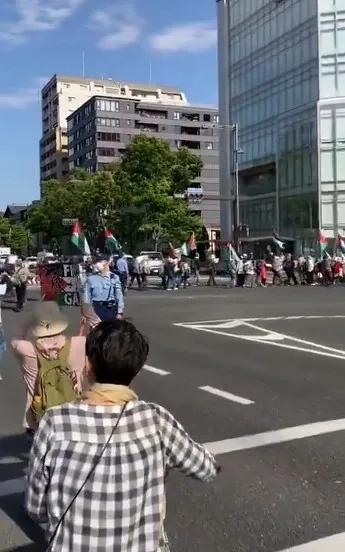
Synopsis
Key Takeaways
- Nearly 40,000 gathered in Tokyo advocating for peace.
- Emphasis on Japan's pacifist Constitution and Article 9.
- Concerns over military expansion and recent government actions.
- Call for dialogue and diplomacy in East Asia.
- Participants included families and young people committed to a peaceful future.
Tokyo, May 4 (NationPress) Close to 40,000 individuals advocating for peace gathered in a Tokyo park on Constitution Memorial Day, emphasizing the need to honor Japan's pacifist constitution and to oppose war and military expansion.
Numerous Japanese lawmakers, academics, and citizens were invited to address the crowd, with many attendees displaying banners and signs proclaiming messages like "Oppose arms expansion" and "Cherish the Constitution and uphold world peace!" to showcase their unwavering commitment to peace, according to reports from Xinhua news agency.
The current Constitution of Japan, enacted in 1947, is recognized as the pacifist postwar constitution, with Article 9 renouncing war and prohibiting the maintenance of land, sea, and air forces along with other military capabilities.
For decades, Article 9 has served as a crucial limitation on Japan's military ambitions. However, recent years have seen the Japanese government undertake actions such as lifting the ban on collective self-defense and amending three security and defense-related documents, raising significant public concern.
Senior opposition party officials urged that the Diet, Japan's parliament, should not entertain constitutional amendments while highlighting the necessity of safeguarding peace, lives, livelihoods, and human rights through the existing Constitution.
In her address, Tomoko Tamura, leader of the Japanese Communist Party, emphasized that the government's actions have effectively integrated the Self-Defense Forces into the U.S. military command structure. She advocated for promoting peace diplomacy in East Asia, free from the threat of war, in alignment with the Constitution, aiming to foster a broader dialogue and cooperative framework.
Former Ministry of Economy, Trade and Industry official Shigeaki Koga remarked on the significant global changes and asserted that Japan should remain true to the peaceful essence of its Constitution. He called for breaking reliance on specific nations and rebuilding diplomatic ties through mutual understanding and exchanges, arguing that only through dialogue can conflicts be resolved and peace sustained.
Emeritus Manabu Sato from the University of Tokyo criticized the current government's military expansion as contrary to the Constitution's spirit and questioned the substantial defense budget. He contended that the war-renouncing Article 9 has ensured lasting peace in Japan post-war, advocating for prioritizing resources towards education, social welfare, and structural improvements.
The rally drew a considerable number of young participants and families. A mother attending with her children shared her hopes for a future devoid of war threats: "As a parent, I am responsible for instilling this concept in my children."

